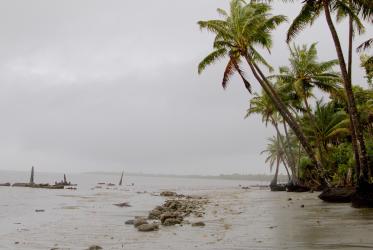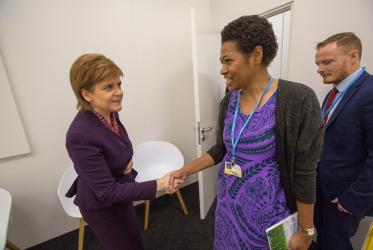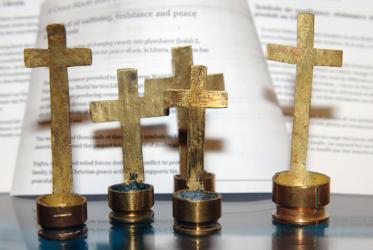Displaying 1 - 20 of 23
Churches march in New York City to declare no faith in fossil fuels
18 September 2023
Webinar brings Pacific voices for a new creation
10 February 2021
Churches should use their voice on climate change
26 February 2020
WCC well-represented in Religions for Peace leadership
07 October 2019
WCC supports UN petition from French Polynesia
07 November 2018
WCC presents interfaith statement to COP23 high level plenary
16 November 2017
First minister of Scotland meets WCC delegation at COP23
16 November 2017
Ralph C. Young, veteran of the ecumenical movement, dies at 100
02 December 2015
The new Arms Trade Treaty: a life-saving gift this Christmas
19 December 2014














